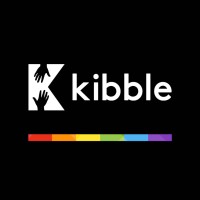The post holder will hold a psychotherapist qualification recognised by the Health and Care Professions Council (HCPC). This could include counselling, art therapy, integrative therapy or equivalent. Professional registration with HCPC, BACP or other relevant regulatory body. Experience of providing both in person and online therapy sessions. A minimum 2 years’ experience of working with adolescents & young adults with complex needs is desirable. Experience of supporting adolescents and young adults who are care experienced is desirable. Evidence of continuing professional development and a keenness to develop your practice. The post holder will have patience, and respond positively and calmly to physical and verbal aggression. Excellent interpersonal and listening skills and be able to communicate clearly and precisely orally and in writing both within the Centre and with external agencies. Work unsupervised and on own initiative. Safe Crisis Training (SCM) Successful candidates will require a level of fitness to be able to carry out SCM. Please see note section below for further information. Pension, holidays (up to 8 weeks per year, increasing with service), enhanced sick and maternity pay and employee benefits including long service recognition, cash4health, credit union, employee assistance programme, free parking, free meals, access to onsite physio. Notes: This job outline reflects the main tasks and responsibilities discharged by the post holder at the present time, however, Kibble reserves the right to alter or amend the content of this job outline to reflect changes to the job or services provided, while maintaining the overall character and level of responsibility for the post. Notwithstanding any information or statement described within this job outline, all duties must be carried out in a way that promotes equality of opportunity, dignity, and respect for all individuals and which is consistent with Kibble’s stated policy on equal opportunities. The successful candidate will be subject to PVG Scheme Membership. Having previous convictions will not automatically disbar you from working at Kibble (with the exception of offences against children or other vulnerable groups) and every case is taken on an individual basis. The successful candidate will be required to undertake Safe Crisis Management (SCM) training and will require a level of fitness to be able to carry out SCM. The successful candidate must be able to participate fully in this training and be prepared to put this training into practice. The SCM training will consist of two days theory and two days physical training. The successful candidate must complete this training in full within four weeks of an agreed start date. Should the candidate for any reason fail any aspect of the SCM training (theory, physical or both parts), an additional two weeks will be given to pass. Appointments will be subject to a
twelve-month probationary period .
#J-18808-Ljbffr
Kibble is Scotland’s specialist provider of services for at risk children and young people. Our care, education and specialist interventions help disadvantaged young people build themselves a brighter future. A Scottish charity Our nineteenth century philanthropic founder, Elizabeth Kibble, was heiress to a textile fortune and on her death in 1840, she left a portion of her wealth to establish a home for “youthful offenders”. Kibble has evolved for more than a century and a half from this point while always staying true to its original mission of supporting young people facing adversity. Kibble is one of Scotland’s oldest charities and seeks to honour Elizabeth Kibble’s legacy by continuing to support young people from the local area and across Scotland. A social enterprise In 1996, Kibble embarked on a phase of its development that would see it become one of the country’s leading social enterprises. The redefining of local authority boundaries meant a loss of financial support from the public sector and Kibble was faced with closing its doors or finding a radically different model of financial support. It opted to become a social enterprise, a business model in which any financial surplus is reinvested into the organisation and never distributed to owners, shareholders, investors or directors. Almost two decades later, Kibble continues as one of Scotland’s largest genuine social enterprises and values its role in promoting social enterprise as a sustainable and ethical business model.

